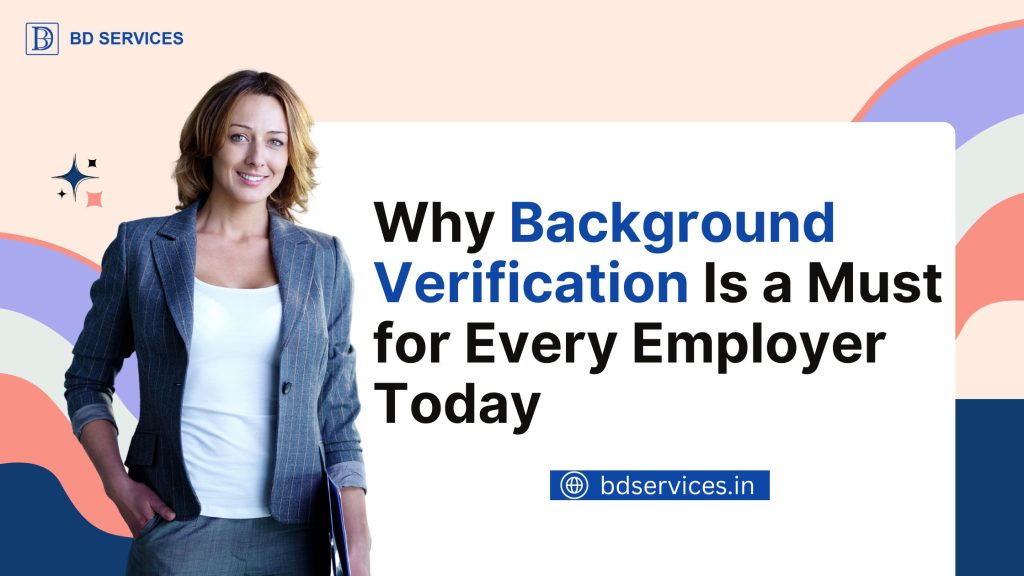Hiring new workers has become more complicated than it ever was. As competition intensifies, the danger of choosing a wrong person increases as well. A company’s success is deeply rooted in trust and safety. Background checks are a great tool to locate the most trustworthy ones. They shield your company not only from legal issues but also from financial risks, bad reputation, and unhappiness. With the job market changing at such a rapid pace, conducting background verification is more than just a clever move — it’s a necessity. It is a guarantee that your team operates on integrity and gives your firm a competitive edge.
The Growing Significance of Background Verification in the Modern Workplace
Evolving Hiring Challenges
The job market is rapidly evolving. Jobs are not just restricted to offices anymore, and people are also working with flexible schedules which have become normal in today’s world. As a consequence, it has become more difficult to hire, as you may not get the chance to meet candidates face-to-face. At the same time, the number of fake resumes and over-exaggerated qualifications rises. Some people are ready to go to any lengths if it will help them get the position they want. Thus, interviews alone can’t be the only method that you should rely on. It is imperative to gain a complete picture of the candidate by going beyond the resume and verifying it.
Legal and Compliance Requirements
Many countries have laws that oversee employment screening. In the US for instance, the Fair Credit Reporting Act (FCRA) is a law that governs background checks. Violating this law can result in payment of fines or filing of a lawsuit. Companies that do not comply with the law or circumvent the checks are putting themselves at risk of legal action. A business was fined not long ago for hiring a person with a past, which they did not verify. These cases exemplify the necessity to be compliant.
Protecting Organizational Reputation and Workplace Safety
A bad hire can turn your workplace vibe upside down and lead to a loss of customer trust. If an employee is dishonest, it can become a very dangerous situation or theft may occur. Defending your reputation is equivalent to demonstrating that you consider safety as a top issue. Thorough background checks are your tool to eliminate the possibility of hiring a dishonest person. This uncomplicated act is a guarantee expected from the team and image as well.
Key Components of Effective Background Verification
Identity Verification
Start by confirming the candidate’s identity matches their documents. Tools like biometric checks or ID scans offer quick proof. This step prevents fake identities from slipping through.
Employment and Education Verification
Verify past jobs and degrees. Contact previous employers and schools to confirm the facts. This helps reveal any false claims on the resume. It’s a simple way to spot embellishments early.
Criminal and Credit Checks
Screen for criminal history to keep your workplace safe. Conduct credit checks only when relevant, such as roles involving finances. Be sure to follow legal guidelines when doing these checks.
Reference and Personal Verification
Most definitely, get in touch with references if you want to get the most sincere feedback. In addition, you have to ascertain compatibility with the person’s core traits such as trustworthiness and ability to work in a team.
Technological Advancements in Background Screening
Use of AI and Automated Tools
Artificial intelligence speeds up background checks and improves accuracy. Automated platforms reduce errors and save time. Some AI systems can quickly scan large databases to flag issues.
Integration with HR Software
Your tools for verification need to cooperatively work with your HR systems. This allows you to receive updates in real time and be able to onboard faster. When background checks are integrated, you get a better grasp of each candidate.
Data Security and Privacy Considerations
They are the ones who disclose the person’s true character. Do not allow anyone to access candidate data. Follow privacy regulations so that you avoid legal trouble.
Best Practices for Implementing Background Verification
Establish Clear Policies and Procedures
Create detailed screening rules. Make sure every recruiter knows when and how to run checks. Be transparent with candidates about what you verify.
Select Reliable Background Verification Providers
Pick certified vendors that have good reputations. Find experience, security standards, and customer feedback. A reliable partner makes it simple to avoid mistakes and inconsistencies.
Timing and Scope of Checks
Start background checks early in the hiring process. Decide what to check based on the role — some jobs need deeper checks than others. Doing checks at the right moment prevents delays.
Legal and Ethical Considerations
Give candidates respect and dignity. Do not discriminate against anyone because of any of the protected factors. It is essential that beforehand, written consent is obtained and the background check is done in a professional and respectful manner.
Real-World Examples and Case Studies
One company ignored thorough background checks and hired a candidate with a criminal record. This led to legal action and huge costs. On the flip side, another organization used complete screening. They avoided risks and saved money. That company found out early about potential issues and dealt with them before it caused chaos.
Lessons are clear: skipping background checks can be costly. Doing them right safeguards operations and your reputation.
Conclusion
Background verification is really important nowadays in the recruitment process. It is not only the result of ticking boxes; it is about creating a safe, trustworthy, and effective workplace. Screening ensures that you operate within the law, your team is protected, and you hire good staff. Investing in a solid background check system is investing in your company’s future. Don’t wait — start using strong verification practices now to reduce risks and keep your organization safe.

